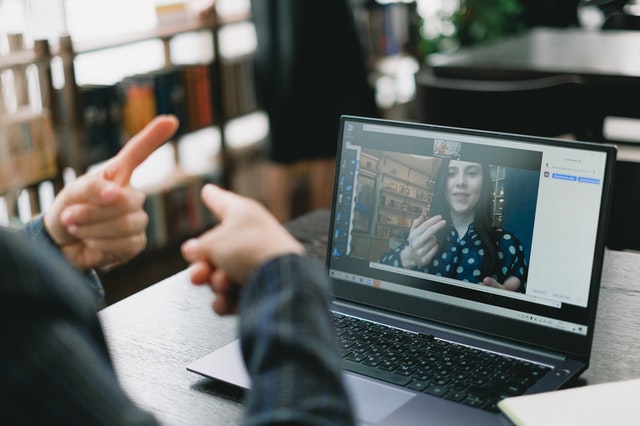Top universities show bias towards hearing and speaking students

New research published today shows that many of the UK’s top universities may be preventing students who cannot hear or speak from applying for courses by providing a ‘telephone only’ approach to communication.
The research, ‘Different communicators need not apply: Why the pre-admissions experience matters for non-hearing and non-verbal learners applying to university’ was published by Business Disability Forum. The non-profit, business and disability organisation, reviewed the admissions and contact information on the websites of 100 universities featured in the The Guardian’s Best UK Universities 2022 rankings, as well as 58 clearing sites.
Headline findings
Out of 100 university websites and 58 clearing sites reviewed:
- 40 per cent of universities only give a telephone number for prospective students to contact them on.
- Only 48 per cent of universities give an email address in addition to a phone number for prospective students to contact them on.
- Just 2 out of 100 universities offered a British Sign Language (BSL) video interpreting service on their website.
- Out of 58 clearing sites reviewed, 76 per cent only offer a telephone number.
Inaccessible communication methods and websites
The research also found:
- A general over-reliance on social media and web contact forms as an alternative to using the telephone, even though these forms of communication remain inaccessible to a wide range of assistive technology users and disabled people.
- The provision of email addresses was generally imbalanced, even within a single university. For example, on some university websites, email addresses were offered to contact the accommodation or campus security teams, but not for contacting the admissions team.
- Too many moving images and pop-up boxes on contact information pages. These can be distracting and distressing for some people with autism or conditions affecting attention.
- Multiple scroll actions needed to find contact details. This can be frustrating for people who do not have steady hand or arm movements or who have difficulties with dexterity.
- Two out of 100 university websites did not include any contact details.
The impact of a hearing and speaking first culture
Diane Lightfoot, CEO, Business Disability Forum, said:
“Many of the top universities have made a public commitment to increase diversity and inclusion, and are required to do so under the Public Sector Equality Duty. If they truly want to meet these commitments then they must understand that not everyone communicates in the same way.
“A hearing and speaking first communication culture overlooks the needs of non-hearing students and students with speech impairments who often find telephone communication difficult. Our research suggests that such students have to worker harder than their peers to access the information they need to apply for a course. We also know that many will simply give up at this stage, deciding that it is better to look elsewhere than to pursue a course at a university where they have not been made to feel welcome or included.
“Communicating in an inclusive way is not just about doing the right thing, but about attracting the widest pool of talent. Of course, the application process is just one part of the student journey. Universities must also review their wider communication processes to ensure parity of experience for all disabled and non-disabled students throughout and beyond their time at university.”
Advice to universities
Business Disability Forum is calling on universities to take the following actions. Universities must make sure:
- Both phone and email (at the very least) contact options are clearly available.
- Details of the disability and wellbeing support team and services are close to admissions information on the website, where prospective students can clearly find it.
- Information about the accessibility of the campus and the support that is available to adapt course delivery are readily available (and that this information is available in a student’s preferred format).
- Each team who might receive these requests from prospective students is equipped to know (a) how to respond, and (b) how to arrange the information to be provided in a different format if needed.
In addition, Business Disability Forum is providing the following advice to help universities to review their wider communication processes and to identify any barriers that may be preventing people from applying to study at their institution:
- Recognise that not everyone communicates in the same way.
- An institution’s approach to inclusive communications should be consistent across the whole university. A common complaint from disabled people is that organisations offer an inconsistent approach to accessibility and adjustments depending on what area of the organisation they are in contact or working with at the time.
- Map the end-to-end ‘journey’ that a prospective student goes through when applying to university to inform their communications.
- Develop an inclusive comms ‘checklist’ to equip all staff to embed inclusive communication options and accessibility practices across the whole institution.
- If web contact forms are used, then get them accessibility tested and user tested.
- Recognise that BSL is the first language for some people who are Deaf and provide BSL video interpretation on their website.
- Business Disability Forum’s research and auditing work generally shows that if universities are not providing an inclusive approach to ensure accessible communications and format options for applicants and students, they are typically unlikely to be doing this for staff either. Therefore, universities should also review communications from an employee perspective as well.
Read the research in full on Business Disability Forum’s Policy and Research pages https://businessdisabilityforum.org.uk/knowledge-hub/resources/different-communicators/











Responses